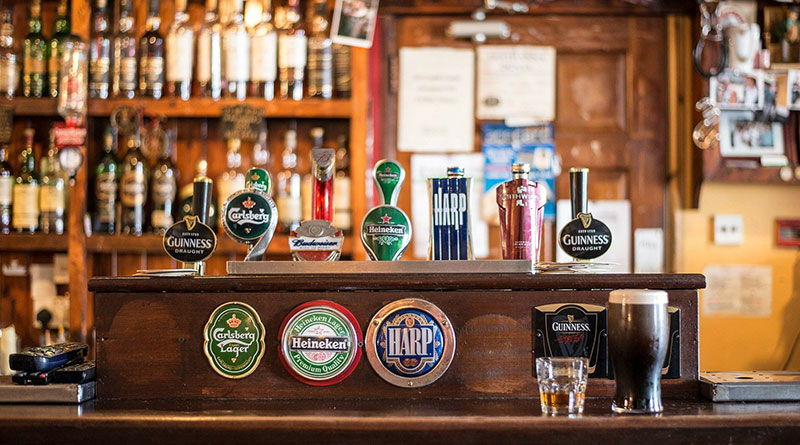Company Voluntary Arrangements Rise By 375% With Hospitality Most Affected

Company Voluntary Arrangements in consumer facing sectors, which have been keenly exposed to the economic uncertainty caused by COVID-19, have increased by 375% year-on-year, new analysis from PwC finds.
Billions of pounds in Government support and a ban on winding up petitions contributed to a total decrease in CVAs across all industries between January and November 2019, when 339 CVAs were launched compared to 238 CVAs between January and November 2020.
However, 25 “large” CVAs were launched by companies with turnover above £25m between January and November 2020 compared to 13 between January to November in 2019.
Of the 25 large CVAs to November 2020, 19 were launched by retail consumer hospitality and leisure (RCHL) firms from June onwards, reflecting the business climate facing these sectors at the time. In comparison four CVAs were agreed across the same period in 2019 – nearly a five-fold increase. Additionally, since the start of November, proposals for six more RCHL CVAs have been made public.
PwC analysed 17 of the 19 large RCHL CVAs launched between June and the start of November 2020*. These CVAs affected 2,992 business sites** with the Greater London region being most impacted (776 premises).
The Top 5 city locations for large RCHL CVAs were:
London 19.9% (595 sites);
Birmingham 2.9% (86);
Edinburgh 2.0% (59);
Manchester 2.0% (59):
Newcastle 1.7%. (50),
The sector most affected with 1,939 sites was hospitality (casual dining and hotel***), equal to 64.8% of analysed sites, followed by fashion retailers with 927 sites (31%) and leisure operators, 126 sites (4.2%).
Hospitality was also the category with the largest proportion of sites (338, or 17.4%) where outlets closed due to CVAs.
David Baxendale, restructuring partner and CVA supervisor at PwC, said:
“COVID-19’s impact on businesses has resulted in a large number of companies using a CVA as an effective means of survival through measures including injecting new money from lenders or shareholders, rent reductions and reducing property portfolios.
“The overarching objective is to give companies the best chance of continuing as a going concern in light of the immediate challenges presented by COVID. Some of these CVAs delivered a full restructuring with various stakeholders shouldering the burden and new funds being injected, alongside others which focused on landlords in isolation.
“The impact on landlords has varied from a minority where they are relatively untouched through to those where arrears and future obligations are fully ‘compromised’. In almost a third of cases**** landlords have agreed to a shift to turnover rents, supporting businesses during periods of enforced closure or decreased footfall.”
The vast majority of sites in the 17 CVAs analysed (79.7%) agreed changes to their lease terms. For the sites where changes were proposed, these included:
transition to turnover-based rent;
rent reductions;
write off of arrears; and
changes to payment terms – often a shift from quarterly to monthly rent payments.
Across the remaining 15.7% of sites, companies planned to cease trading and ultimately exit the site. In total, only 138 sites (4.6%) continued under the same terms they had agreed previous to the CVA. This suggests that negotiations and agreements with landlords continued outside of the CVA process in some cases.
12 of the 17 CVAs analysed – more than 70%- asked creditors for concessions lasting for a duration of 2 years or more.
Additionally, the analysis found that many of the RCHL CVAs in 2020 have not attempted to compromise HMRC debt, often citing the support already provided by the tax collection agency as a reason. However from 1 December 2020 certain HMRC debts (e.g. VAT) will have preferential status in the event of insolvency, meaning these debts can no longer be compromised through a CVA. Consequently, any support from HMRC will need to be negotiated directly outside of any CVA process.
Julia Marshall, restructuring director at PwC, said:
“Many businesses will have chosen to negotiate directly with landlords and other creditors and remain out of the spotlight generated by a CVA. The recent extension of a moratorium protecting tenants from the threat of eviction by commercial landlords until 31 March 2021 provides further breathing space for any such negotiations to take place.
“However, this is a double-edged sword. The use of CVAs to restructure businesses and related liabilities will certainly continue in 2021. Companies usually expecting major revenues in and around the festive period will have significant liabilities – including rent – which will still need addressing to enable companies to survive.”
David Baxendale, restructuring partner and CVA supervisor at PwC, added:
“CVAs disclose both the current status of the business, how creditors are to be treated and what the outcome could be if the CVA is rejected. Encouragingly 16 of the 17 RCHL CVAs analysed included an injection of new money from either lenders or shareholders, reflecting the value of a wider restructuring.
“Looking forward to 2021, there will be more CVAs – but there could also be more challenges from creditors under increasing financial pressure – or from parties using the CVA as a platform to offer creditors an alternative deal via a takeover.”
